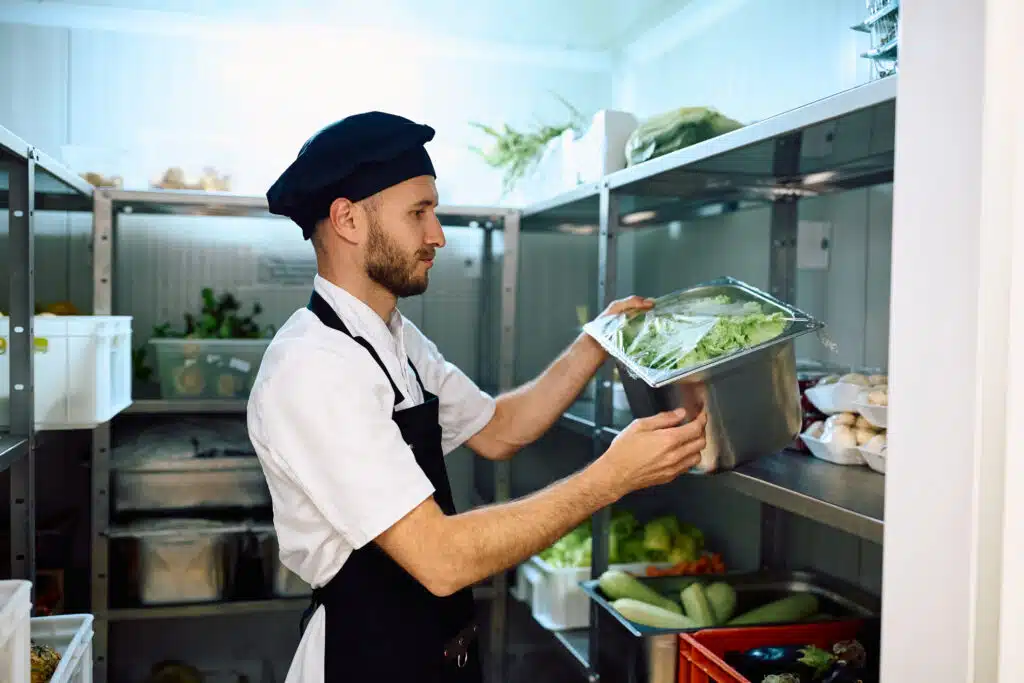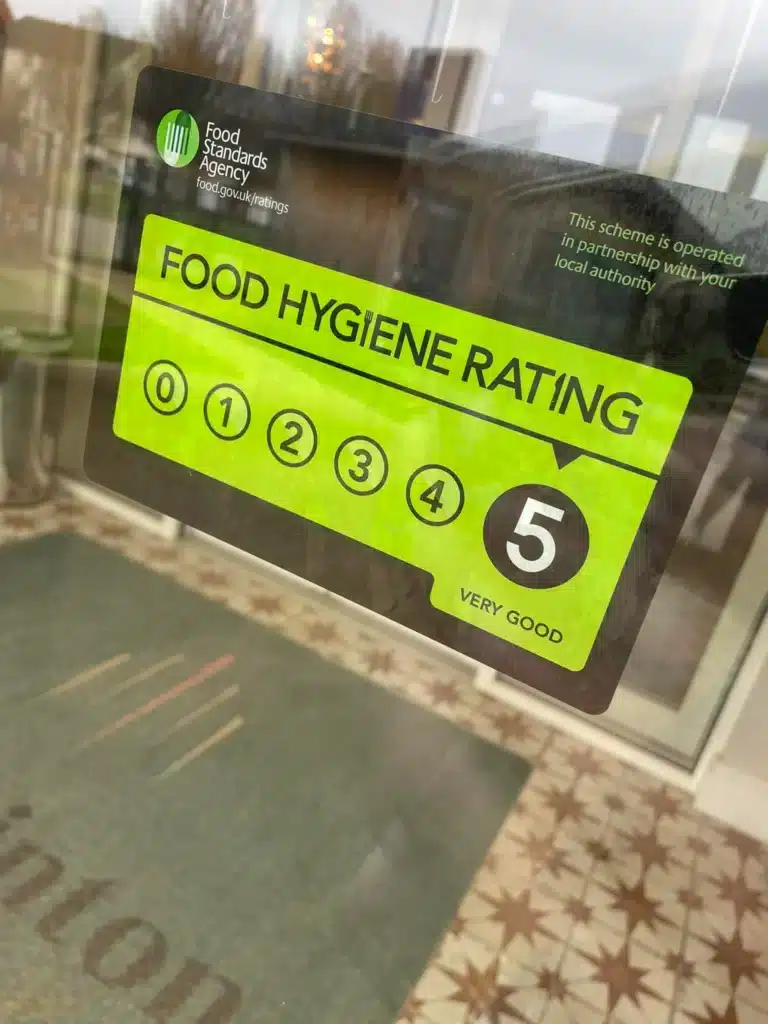Food hygiene is the backbone of safe food handling, critical for UK restaurants, cafés, and catering businesses aiming for a 5-star Food Hygiene Rating. With over 2.4 million foodborne illness cases annually in the UK, proper hygiene practices are non-negotiable (NHS). This guide dives into food hygiene essentials, surpassing basic tips to help you comply with Food Standards Agency (FSA) standards and excel in 2025. Master these skills with Skilltopia’s Level 2 Food Hygiene and Level 3 Food Hygiene courses, CPD-accredited for UK professionals.
What Is Food Hygiene and Why Does It Matter?
Food hygiene encompasses practices that ensure food is safe to eat, preventing contamination by bacteria like *Salmonella* or *E. coli*. It covers handling, storage, preparation, and cleaning, aligning with EU Regulation 852/2004. In 2025, the CIEH emphasises digital tools and training to maintain hygiene standards.
Why It Matters: Poor hygiene leads to foodborne illnesses, reputational damage, and legal penalties. The FSA’s Food Hygiene Rating Scheme (FHRS) rates businesses from 0 to 5, impacting customer trust. A 5-star rating can boost business by 20% (FSA data, 2024).
Core Principles of Food Hygiene in 2025
Master these four pillars to achieve compliance and safety:
- Cleaning: Sanitise surfaces and equipment to prevent cross-contamination, per FSA guidelines.
- Cooking: Ensure food reaches safe temperatures (e.g., 75°C for poultry) to kill pathogens.
- Chilling: Store food at 0–5°C to slow bacterial growth, using calibrated thermometers.
- Cross-Contamination: Separate raw and cooked foods to avoid contamination risks.
2025 Trend: Digital monitoring systems are gaining traction, but training remains critical for compliance.
Common Food Hygiene Mistakes to Avoid
- Inadequate Handwashing: Hands must be washed for 20 seconds with soap, per NHS guidelines.
- Improper Storage: Storing raw meat above cooked food risks contamination.
- Ignoring Temperature Control: Food in the danger zone (5–60°C) fosters bacterial growth.
- Lack of Training: Untrained staff increase non-compliance risks, as noted by CIEH.
Case Study: A London café raised its FHRS from 2 to 5 in 2024 after staff completed Skilltopia’s Level 2 Food Hygiene course, implementing proper storage and cleaning protocols.

How Skilltopia’s Food Hygiene Courses Outshine the Rest
Unlike generic platforms, Skilltopia’s CPD-accredited courses are tailored for UK food businesses, offering:
- Level 2 Food Hygiene: For handlers, covering hygiene practices, hazard control, and FHRS compliance (4–6 hours). Learn more.
- Level 3 Food Hygiene: For supervisors, teaching advanced protocols and audit preparation (6–8 hours). Learn more.
“Skilltopia’s Level 2 Food Hygiene course transformed our kitchen’s practices, earning us a 5-star rating!” – Sarah Thompson, Catering Assistant (15 June 2023).
Benefits of Mastering Food Hygiene
Effective hygiene practices deliver:
- Compliance: Meets FSA requirements.
- Safety: Reduces foodborne illness risks (2.4 million UK cases annually).
- Reputation: A 5-star FHRS attracts more customers.
- Efficiency: Streamlines operations, cutting waste and costs.
Pro Tip: Use Skilltopia’s monitoring templates to track hygiene practices for EHO inspections.
Top Tips for Food Hygiene in 2025
- Train Regularly: Enrol staff in Level 2 or Level 3 Food Hygiene courses every 3 years.
- Use Digital Tools: Implement temperature logs and cleaning schedules, inspired by FoodDocs’ FSMS but enhanced with Skilltopia’s templates.
- Conduct Audits: Monthly checks ensure compliance, as recommended by local authorities.
- Educate New Staff: Onboard with hygiene basics to prevent errors.
- Engage EHOs: Build relationships with local Environmental Health departments for tailored advice.
FAQs About Food Hygiene in 2025
What is food hygiene?
Food hygiene involves practices to ensure food is safe to eat, preventing contamination and foodborne illnesses through proper handling, storage, and preparation.
Why is food hygiene training important in the UK?
Food hygiene training ensures compliance with UK regulations, reduces foodborne illness risks, and helps achieve a 5-star Food Hygiene Rating.
What is the Food Hygiene Rating Scheme (FHRS)?
The FHRS rates UK food businesses from 0 to 5 based on hygiene standards, inspected by Environmental Health Officers.
Who needs a food hygiene certificate?
While not mandatory, food handlers and managers benefit from Level 2 or 3 certificates to ensure compliance and safety.
How can Skilltopia’s courses help my food business?
Skilltopia’s Level 2 and Level 3 Food Hygiene courses provide CPD-accredited training for safe food handling and compliance.
Achieve a 5-Star Rating with Skilltopia
Master food hygiene in 2025 and elevate your business. Enrol in Skilltopia’s Level 2 Food Hygiene or Level 3 Food Hygiene course today! Online, CPD-accredited, and tailored for UK food businesses. Sign up now!






